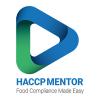Here are some of the differences:
Robot - only looks at getting all of the questions on the audit standard covered during the audit.
Thinker - considers the actual consumer protection outcome of the audit.
Robot - simply goes by the letter of the law according to the standard and leaves the risk assessment to the audited party.
Thinker - does actual risk assessment of all observations to arrive at the reported audit judgment.
Robot - sees any observation that the audit standard does not cover as irrelevant and insignificant.
Thinker – explains the significance of, and/or risks associated with, observations that the audit standard may not have covered to (although these may not appear in the report produced with the standard used).
Robot – accepts every documented proof (even if it is pseudo-evidence) as the objective evidence.
Thinker – challenges the documented evidence through reality checks to assess the validity of the evidence.
Robot – sees an audit“pass” as proof that the audited party’s product safety system is effective.
Thinker – understands that the effectiveness of the audited party’s product safety system depends on the audited party’s consistency in maintaining effective procedures and valid control measures prior to and after audits.
Robot – counts the number of completed audits as the measure of successful involvement and experience in auditing.
Thinker – counts the number of improvements in the safety of products actually delivered to consumers as the measure of successful involvement and experience in auditing.
Edited by gcse-fhp, 30 December 2012 - 12:52 AM.











